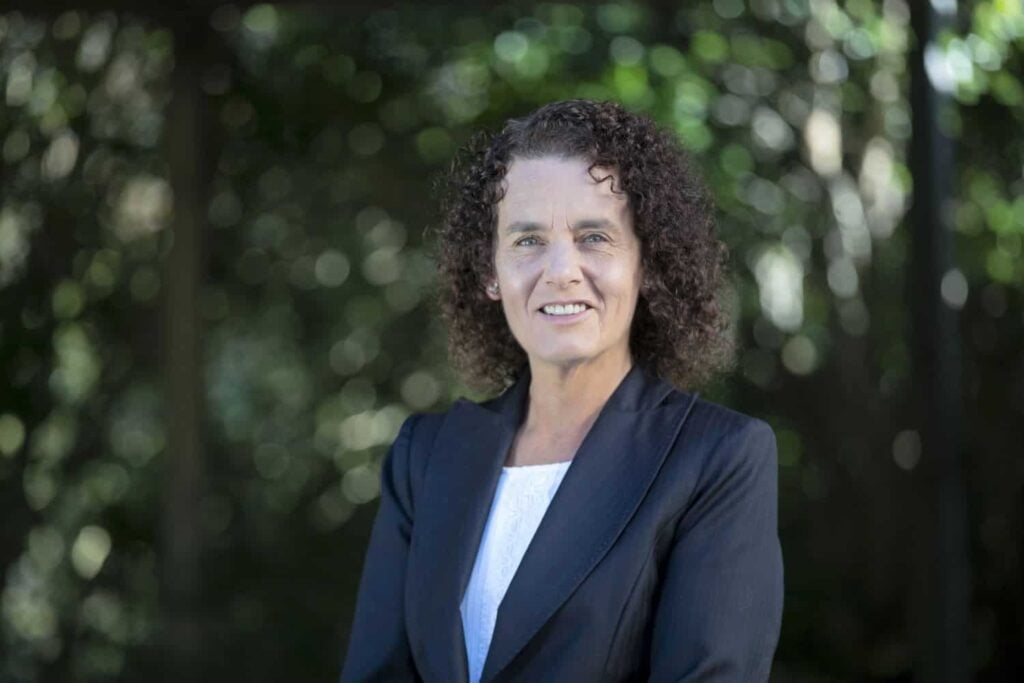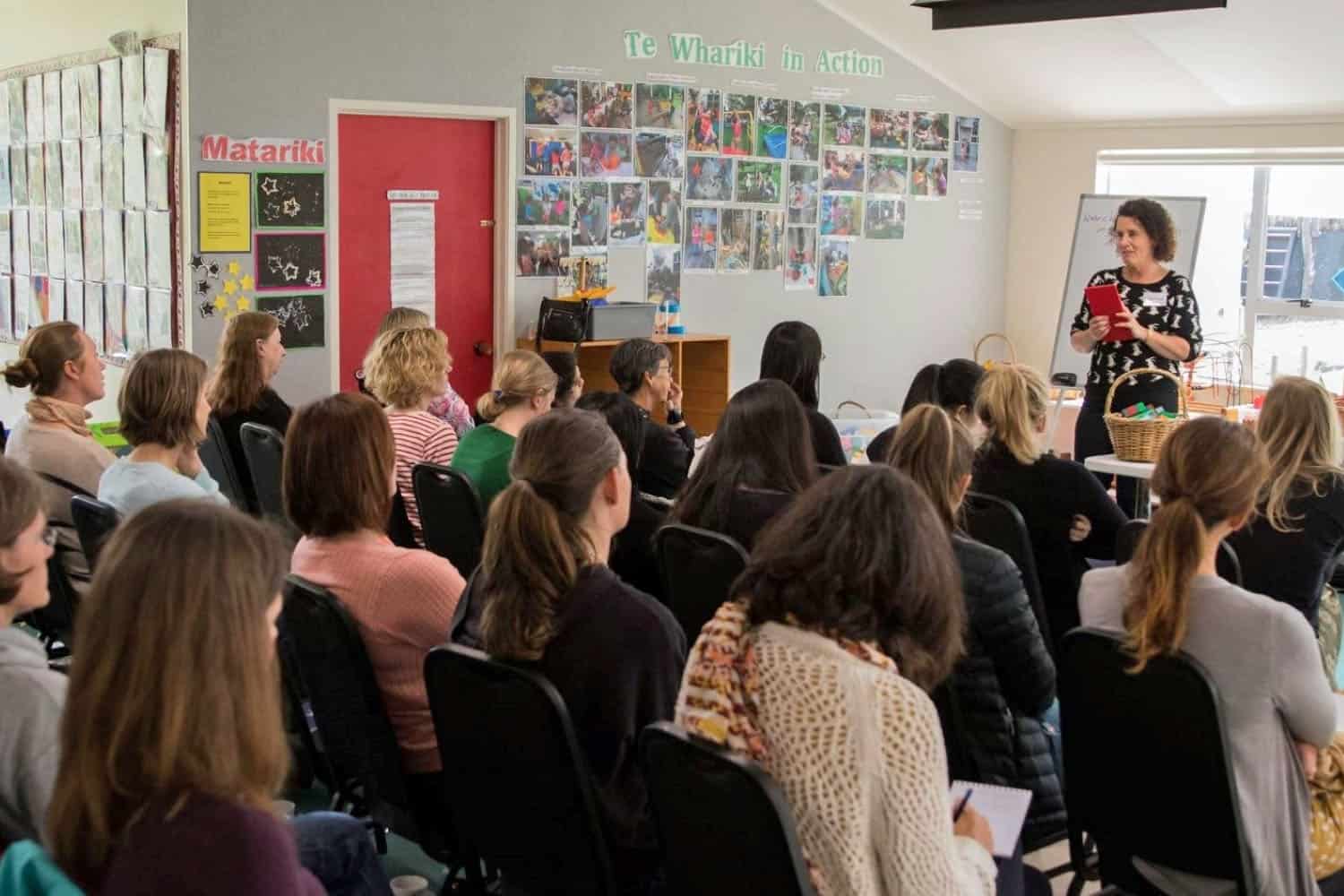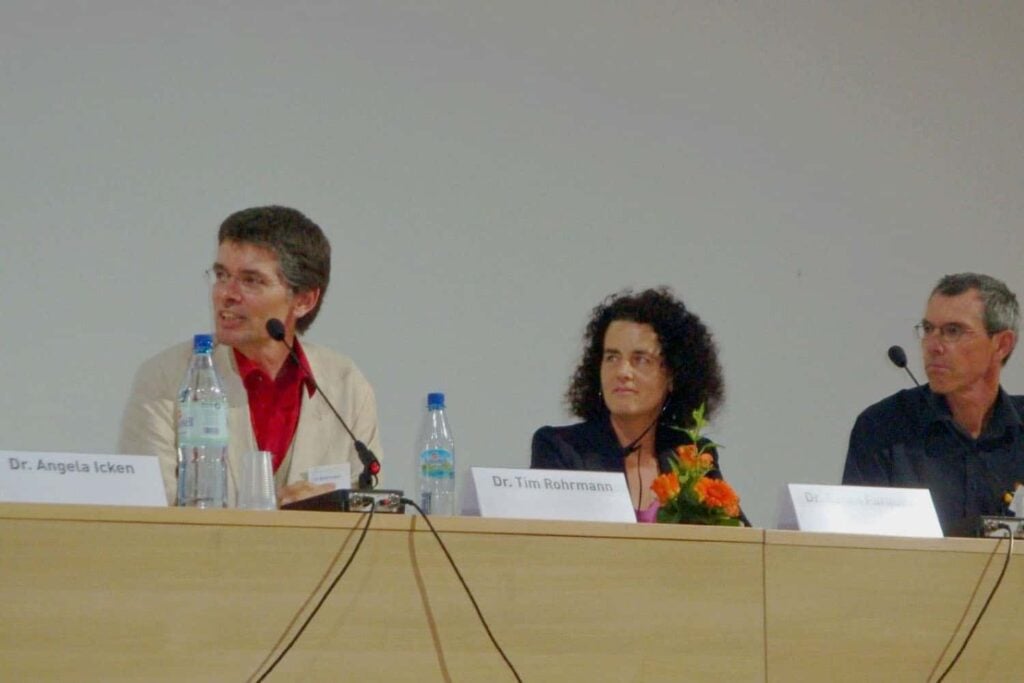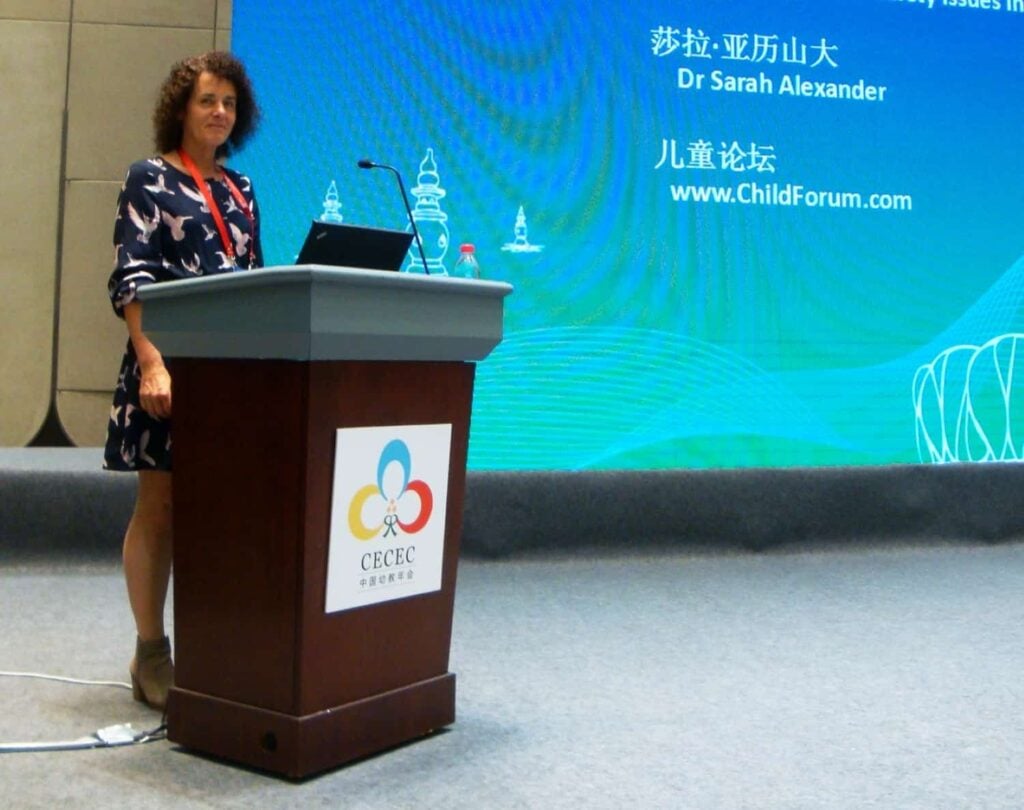The Chief Advisor to the OECE is Dr Sarah Alexander.
Sarah is one of our country’s great leaders in ECE. She has made significant contributions to the sector over her more than 40 years of involvement. With her thoughtful approach and a great deal of courage and caring Sarah has provided strong leadership on critical issues, as well as being a role model and helping many people to get opportunities to help them on their career paths. Sarah continues to be very much involved in the sector and there’s nothing she enjoys more than being with children and participating in early childhood programmes.
Her qualifications include: Ph.D. (Otago)., M.A.(hons)., B.A., Higher Dip Teaching, NZ Free Kindergarten Union Dip, and Montessori Dip.(dist) London.
Biography
Sarah has pushed through many barriers. She may hold the record for NZ’s youngest kindergarten head teacher (appointed just before she turned 19 years and at a time that jobs for kindergarten teachers were scarce and the government therefore decided to do away with its teacher bond scheme).
Sarah was the first kindergarten qualified teacher to gain a Ph.D., at a time when people questioned why someone who cared for young children would ever do further study. Sarah become part of an international group of top experts from around the world, who met several times for up to a week at a time in cities such as Budapest and Seville. For the NZ Ministry of Education, she reported on the implementation of the Before Five (1988) administrative reforms. Specifically, she examined quality within diverse services and the impact on services and people of the requirement to develop charters.
In 1997 Dr Alexander founded the NZ Early Childhood Research Network to nurture the growth of research and support aspiring researchers. She also launched the NZ International Research in ECE Journal – the first academic ECE peer-reviewed journal to be published in NZ.

Sarah was an early childhood lecturer at Wellington College of Education. Later working for Massey University, she taught courses in human development, infants and toddlers in ECE, and educational psychology to students enrolled in various education and non-education degree programmes such as nursing. She wrote and delivered the first Masters degree level paper in quality early childhood education.
Her other main research areas have included looking at the effects of childcare on children, women’s participation in paid work and childcare issues, and developing breastfeeding friendly ECE services. She also researched the experiences of men in teaching, supporting education for gifted children, and the outcomes of parent education and support programmes.
Dr Alexander is author of the “Quality Teaching Early Foundations: Best Evidence Synthesis“, commissioned by the NZ Ministry of Education.
Over the years she has provided advice to many Ministers of Education and has participated in many Government and Ministry of Education advisory groups and panels.
Commitment and Caring
What we see underlying all of Sarah Alexander’s work is her commitment to making a difference for children. She brings a strong intellect and deeply caring approach to all that she does.
Some examples of areas of focus include:
- Reporting on cases of child death and serious injuries to create national awareness of safety problems and deficiencies in current regulations. See for example Dr Alexander’s investigative report into an incident involving a young toddler choking on food not recommended to be fed to a child of his age. This report along with a planned release strategy led to significant public awareness of choking on food danger in ECE and changes in regulations.
- Putting the spotlight on Auckland Kindergarten Association through a series of investigative articles and supporting a parent rebellion. This resulted in a halt to the AKA’s planned programme to change all kindergartens to 7-hour-day year-round childcare. It led to an overhaul of the AKA’s management from a for-profit business to a community-based model.
- Requesting transparency from the Ministry of Education in its handling of complaints against ECE services and placing pressure on it through Official Information Act requests and talking with the media. This led to the ministry’s decision to improve its rate of investigation of complaints and to provide annual public complaint reports.
- Building awareness and understanding of gender-bias in ECE. Dr Alexander carried out the first known NZ research study on the experiences of male early childhood teachers. She has done much to encourage men interested in ECE teaching to take up the career. Dr Alexander organised the very first ECE Men’s Summit (which led to the formation of EC-Menz), set up scholarships, and has continued to talk and write on the issue of the inclusion of men and women in teaching and caring for children in ECE.
- Holding NZEI, the teachers’ union, to account for its no-touch policy. Successfully arguing that there was a place for touch in caring for children in early childhood education programmes, which led to NZEI changing its position.
Personal
Sarah is a mum of 5 children. She was a middle and long-distance competitive runner in her twenties. Today Sarah continues to enjoy road and cross-country running and has recently also taken up going to hot power yoga classes.





